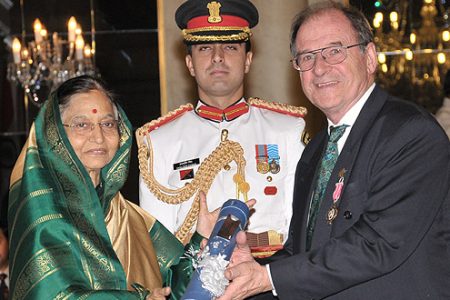Bhubaneswar: The inaugural day of the first World Odia Language Conference titled ‘Biswa Odia Bhasha Sammilani’ will witness the esteemed presence of Padmashri Herman Kulke, a distinguished historian with profound expertise in the study and research of the language, culture, literature, and history of the Indian subcontinent.
Born in Berlin, Germany, Professor Kulke’s connection with Odisha is exceptionally close, reflecting a special interest in the art and culture of the state. His scholarly contributions to the understanding of Odisha’s history are evident through numerous research articles. Notably, he played a pivotal role as a founding member of the Odisha Research Project from 1970 to 1975, where he served as a coordinator, contributing significantly to the exploration and documentation of Odisha’s historical narratives.
During his tenure as a visiting professor at the University of Utah from 1978 to 1979, Professor Kulke further enriched his understanding of Odisha’s cultural nuances. His articles covering various aspects, such as Jagannath culture, regional traditions, cultural unity, the profile of Odisha, Gajapati tradition, Kurmi community, and medieval history, showcase his deep-rooted engagement with the state’s heritage.
The World Odia Language Conference, scheduled from 3rd to 5th February at Janata Maidan in Bhubaneswar, will host sessions in four rooms named after eminent poets Sarala Das, Jagannath Das, Emperor Upendra Bhanj, and Fakir Mohan Sapatana. These sessions will delve into diverse topics related to the Odia language across various fields. Participants from various colleges, universities, historians, linguists, intellectuals, and students are anticipated to benefit from the comprehensive insights provided by Professor Herman Kulke.
This event marks a significant opportunity for the people of Odisha to gain profound knowledge from a distinguished historian, and it is poised to be a valuable learning experience for all attendees. The conference aims to promote a deeper understanding of the Odia language, fostering intellectual exchange and collaboration among participants.

